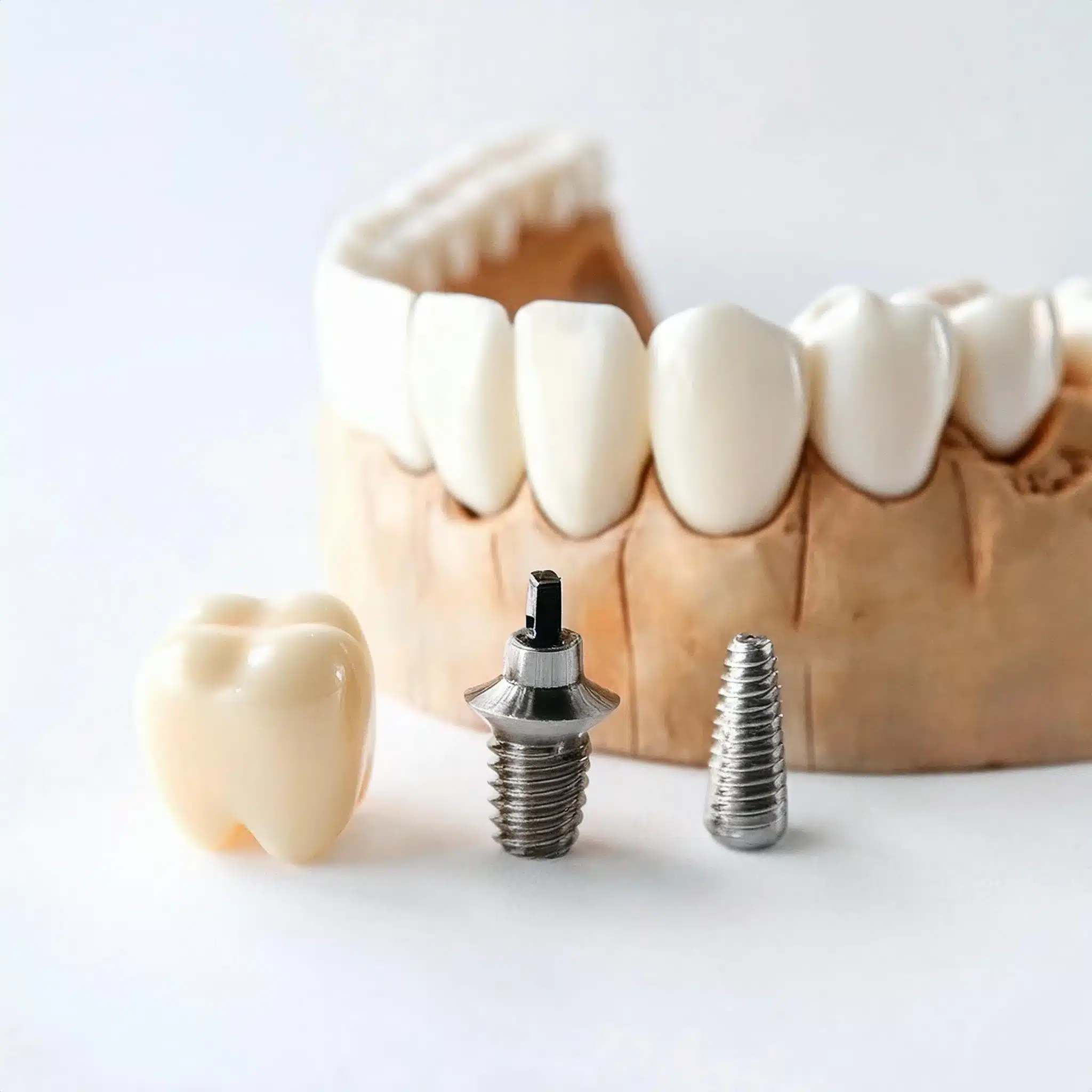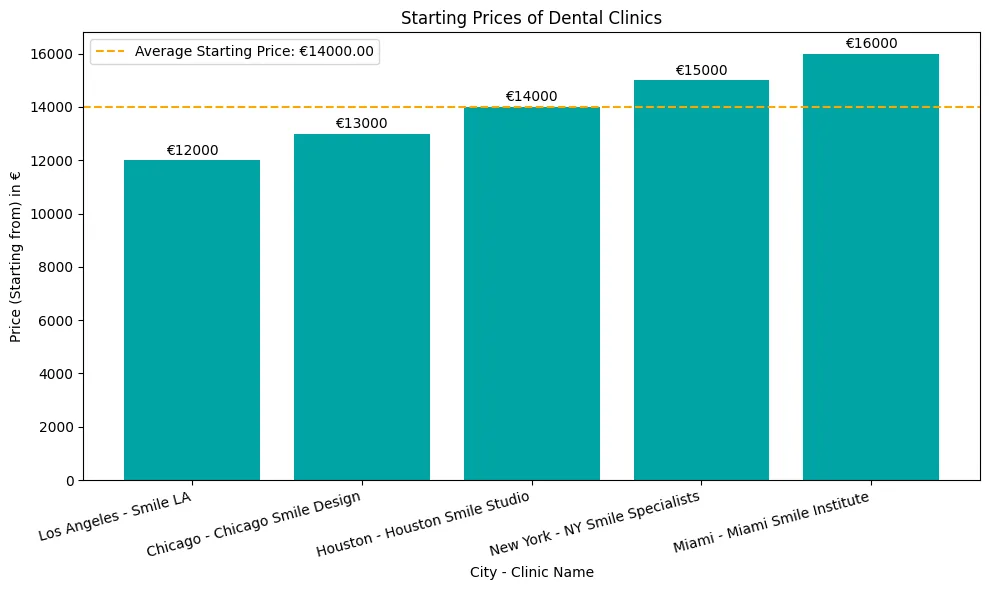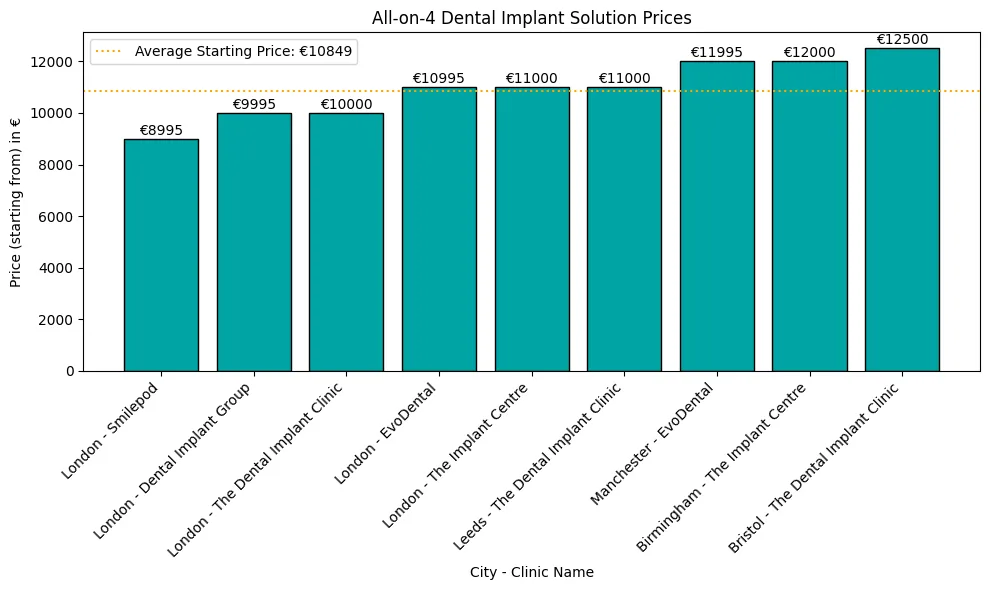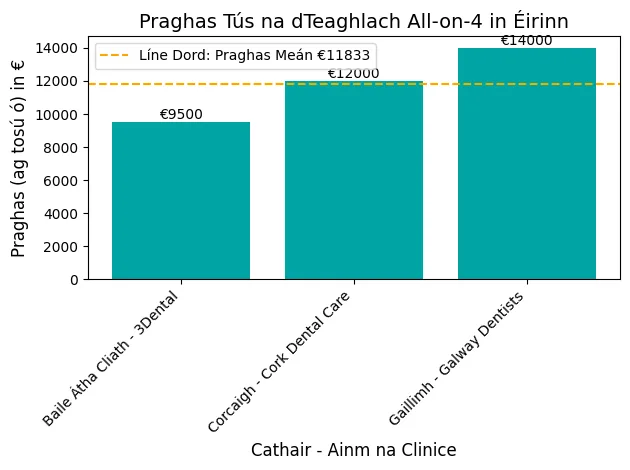Dental implant alternatives are important if you’re looking for less invasive, more affordable or tailored to your needs tooth replacement options.
If you’re one of those exploring alternatives to dental implants because of cost, recovery time or the complexity of the procedure, you’re not alone.
What are the alternatives to replacing missing teeth?
Dental implant alternatives are dentures, bridges, All-on-4, mini implants, and crowns. Dentures offer a removable, cost-effective option (€600-€1,500 for a full set). Bridges provide a fixed solution (€500-€1,200 per unit). All-on-4 and mini implants are less invasive, while crowns preserve natural teeth when possible. These options cater to various needs and budgets.
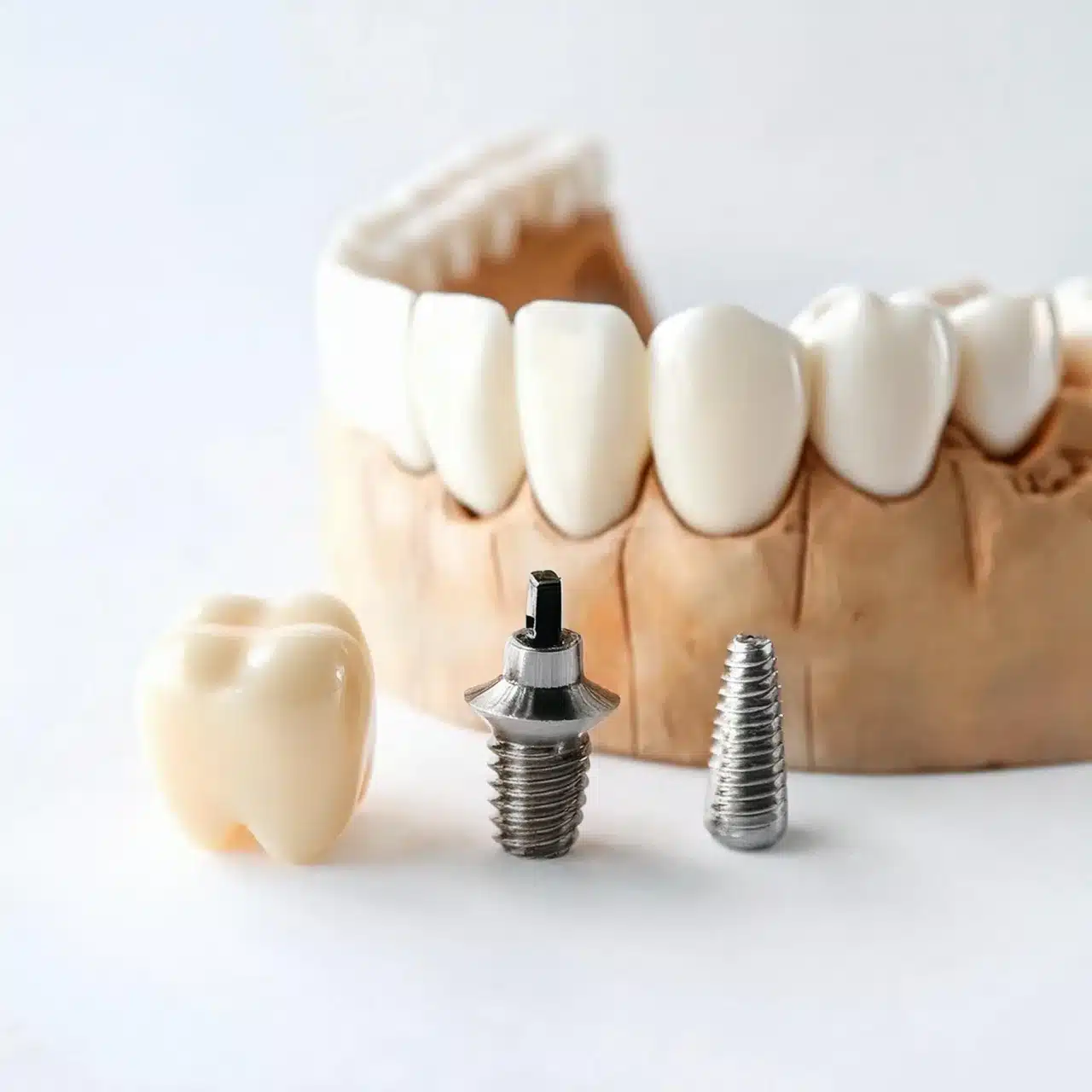
Dental Implants vs Dentures
Dentures Pros and Cons
While various types of dental implants offer permanent tooth replacement solutions, dentures remain a popular alternative, especially if you want a non-invasive option
Dentures are a popular alternative to dental implants, especially if you want a non-invasive option.
They’re removable so easy to clean and maintain.
Dentures can be an affordable option, often much cheaper than implants, which can cost up to €2,000 per implant.
However, they may need periodic adjustments and replacements as the jawbone changes over time.
Dentures can affect speech and eating habits initially but most users adapt over time.(1)
Cost: Dentures vs Implants
When it comes to cost, dentures are generally cheaper than dental implants.
A full set of dentures can cost between €600 and €1,500, depending on the material and complexity of the case.
Implants can cost between €1,500 and €3,000 per tooth, including the crown.
Gum disease can significantly impact the choice between dentures and implants, as untreated gum disease can lead to further oral health issues and affect the success of dental implants.
While implants offer a more permanent solution, they require a surgical procedure and longer recovery time.(2)
Dentures on the other hand offer a quicker and less invasive solution so are a popular option for many patients looking for immediate results.
| Treatment Type | Average Cost (€) | Price Range (€) | Notes |
|---|---|---|---|
| Dentures | 1,050 | 600 – 1,500 | Cost-effective, removable option |
| Dental Implants | 2,250 | 1,500 – 3,000 | Permanent solution, requires surgery |
Dental Implants vs Bridges
Types of Bridges
Bridges are a versatile alternative to implants, providing a fixed solution for missing teeth with a replacement tooth positioned between crowns.
There are several types of bridges to choose from:
Cantilever Bridges: Used when there are teeth on only one side of the gap, cantilever bridges are less common and may put more pressure on the supporting tooth, which can lead to complications over time.
Maryland Bonded Bridges: These use a metal or porcelain framework bonded to the back of adjacent teeth. They’re less invasive but not as strong as traditional bridges.
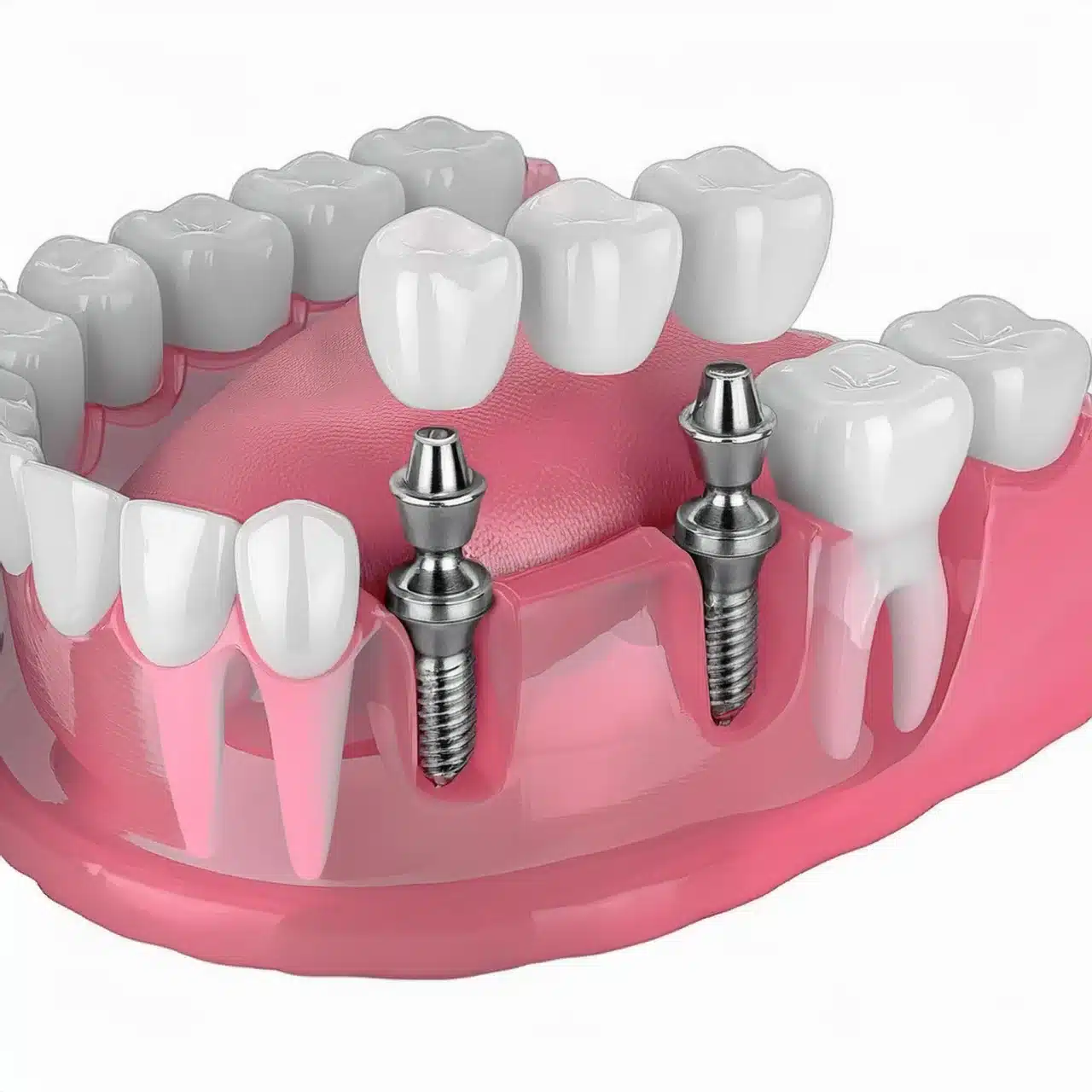
Pros and Cons of Bridges
Bridges have several advantages over implants:
Speed of Treatment: Bridges can be done in a few weeks compared to several months for implants
Non-Surgical: Unlike implants, bridges don’t require surgical intervention, so they’re an option for those who can’t have surgery.
Cost-Effective: Bridges are generally cheaper than implants; they cost between €500 and €1,200 per unit, depending on the material.
Lifespan: Bridges last 5 to 15 years; implants can last a lifetime with proper care.
Adjacent Teeth: Traditional and cantilever bridges require alteration of adjacent teeth, which can weaken them over time.
Each bridge includes an artificial tooth that is securely anchored to the adjacent teeth using crowns or adhesive.(4)
Bone Loss: Bridges don’t address bone loss in the jaw, which can occur over time when a tooth is missing.
This is an area where implants have an advantage as they help maintain bone structure.
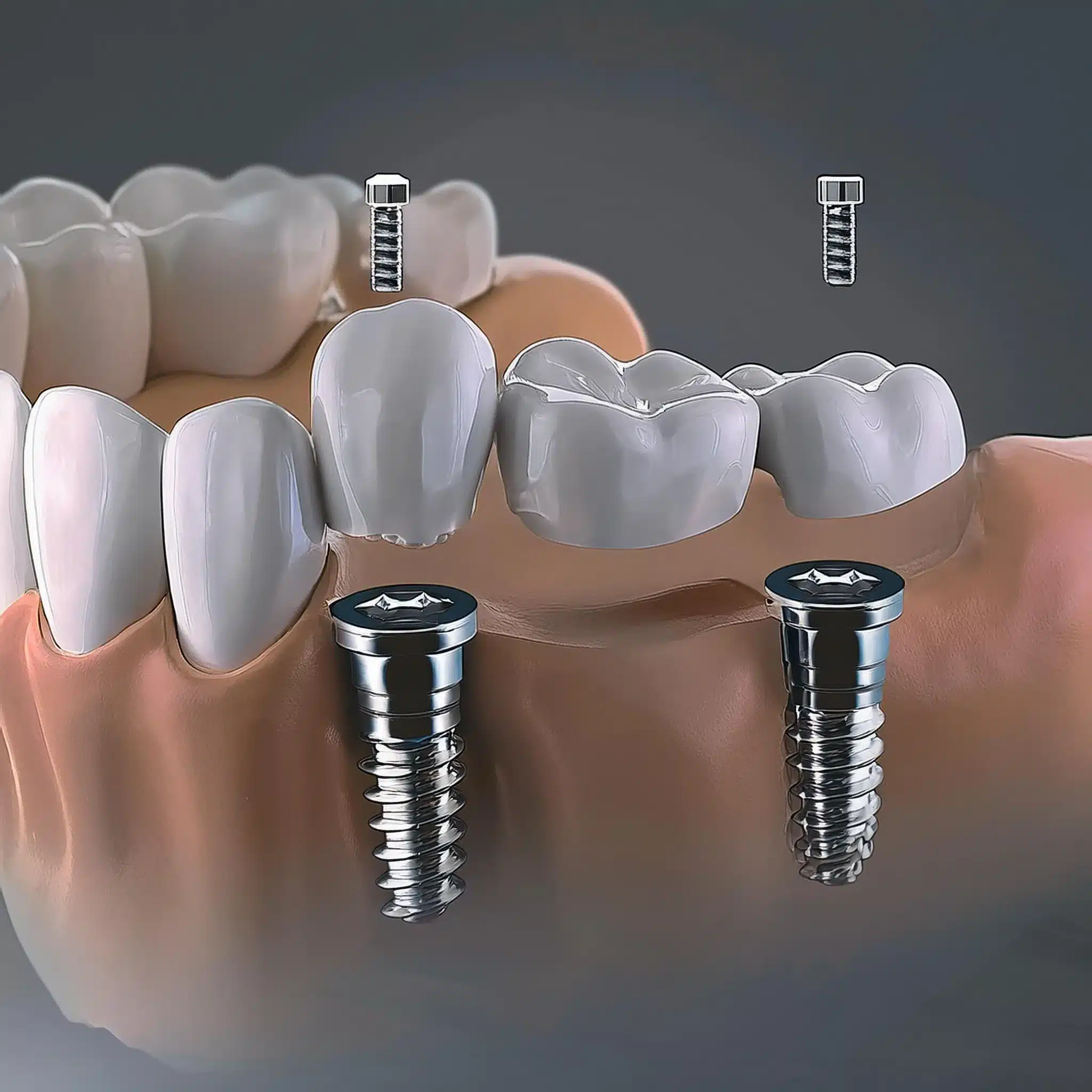
All-on-4 vs Traditional Implants: What’s the Difference?
Procedure
All-on-4 involves placing 4 strategically angled implants to support a full arch of teeth, no bone grafting and immediate results.
Unlike traditional implants, which require multiple surgeries and healing periods.
Pros and Cons of All-on-4
Pros: immediate results, cost-effective, suitable for those with bone loss.(3)
Cons: fixed so can’t be removed and may require future repairs or replacement.
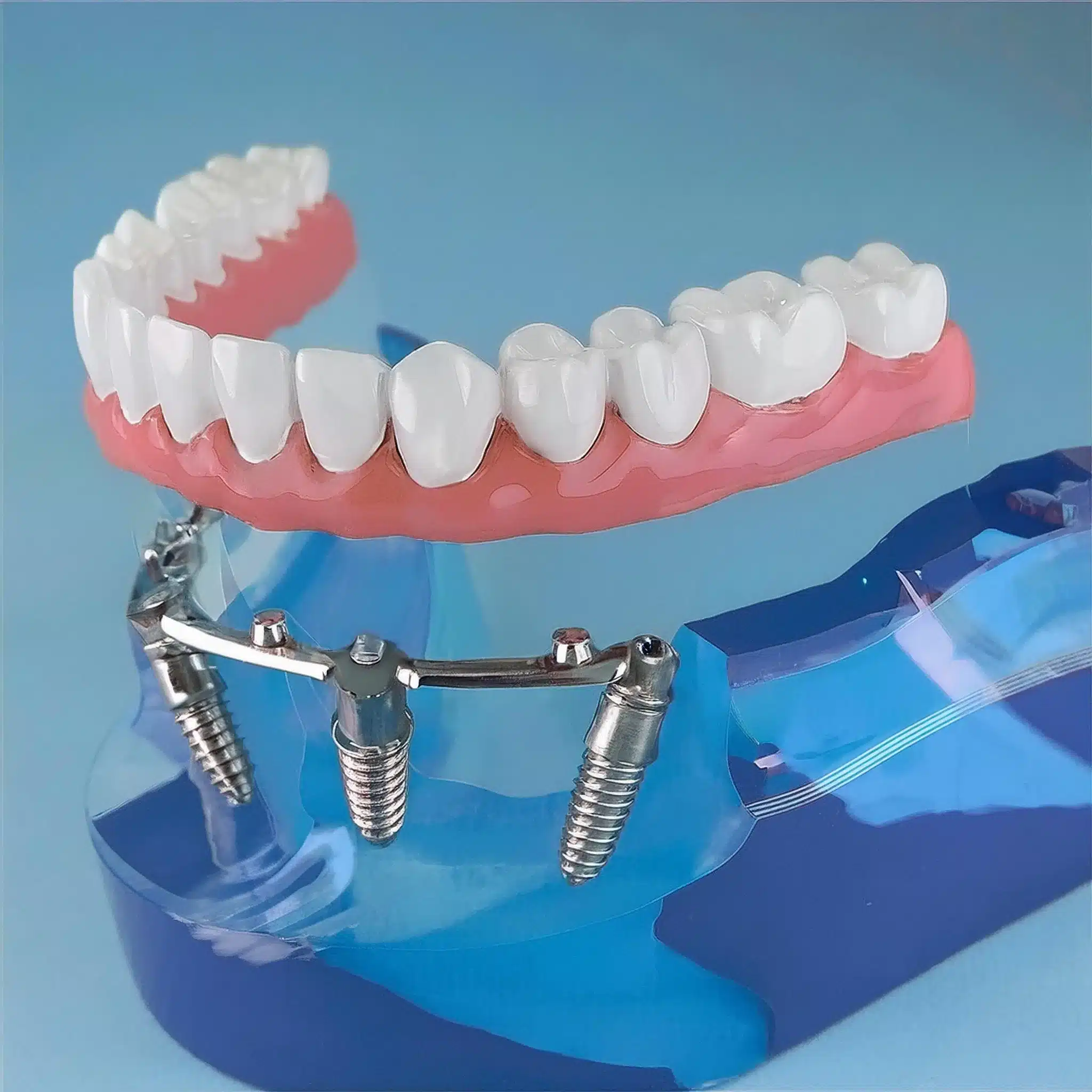
Mini dental Implants vs Traditional Implants
When to Choose Mini Implants
Mini dental implants are a less invasive alternative to traditional implants, suitable for patients with limited bone density or those who want a quicker recovery.
They’re great for securing dentures and providing stability and comfort.
Mini implants are also good for replacing small teeth or in areas where space is limited.
Cost and Lifespan Comparison
Mini dental implants are generally cheaper than traditional implants; they cost between €500 and €1,500 per implant, depending on the complexity of the case and the material used.
They may not last as long as traditional implants but can still provide many years of service with proper care.
A study by Park et al. found that minimally invasive immediate implantation techniques, similar to mini implants, resulted in successful outcomes with minimal complications (3)
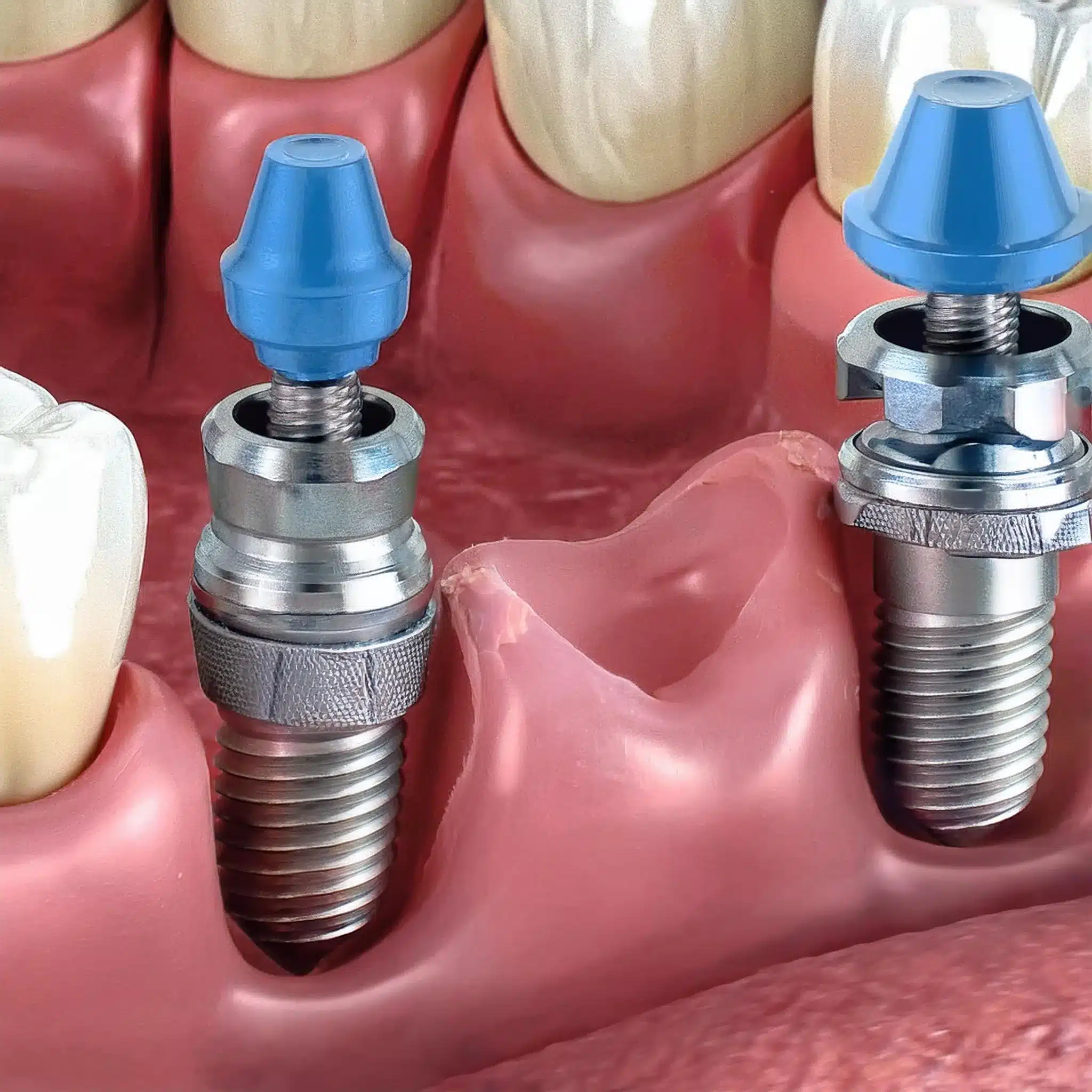
Dental implants vs Crowns
When to Choose Crowns
Crowns are an alternative to implants when the natural tooth can be saved.
They’re useful for teeth that are severely decayed or damaged but still have a healthy root.
Crowns can restore the function and aesthetics of the tooth without the need for an implant.
A study by Amin et al. found that early-loaded nano-coated hydroxyapatite implants showed promising results in the posterior maxilla but crowns can be a less invasive option when the natural tooth can be saved (4)
Maintenance and Lifespan
Crowns need regular maintenance to last long.
This includes regular dental check-ups and good oral hygiene.
With proper care, crowns can last many years.
Barber et al. stressed the importance of careful planning and execution in dental procedures such as obliteration and grafting of the nasopalatine canal to ensure success of crowns and other dental restorations (5).
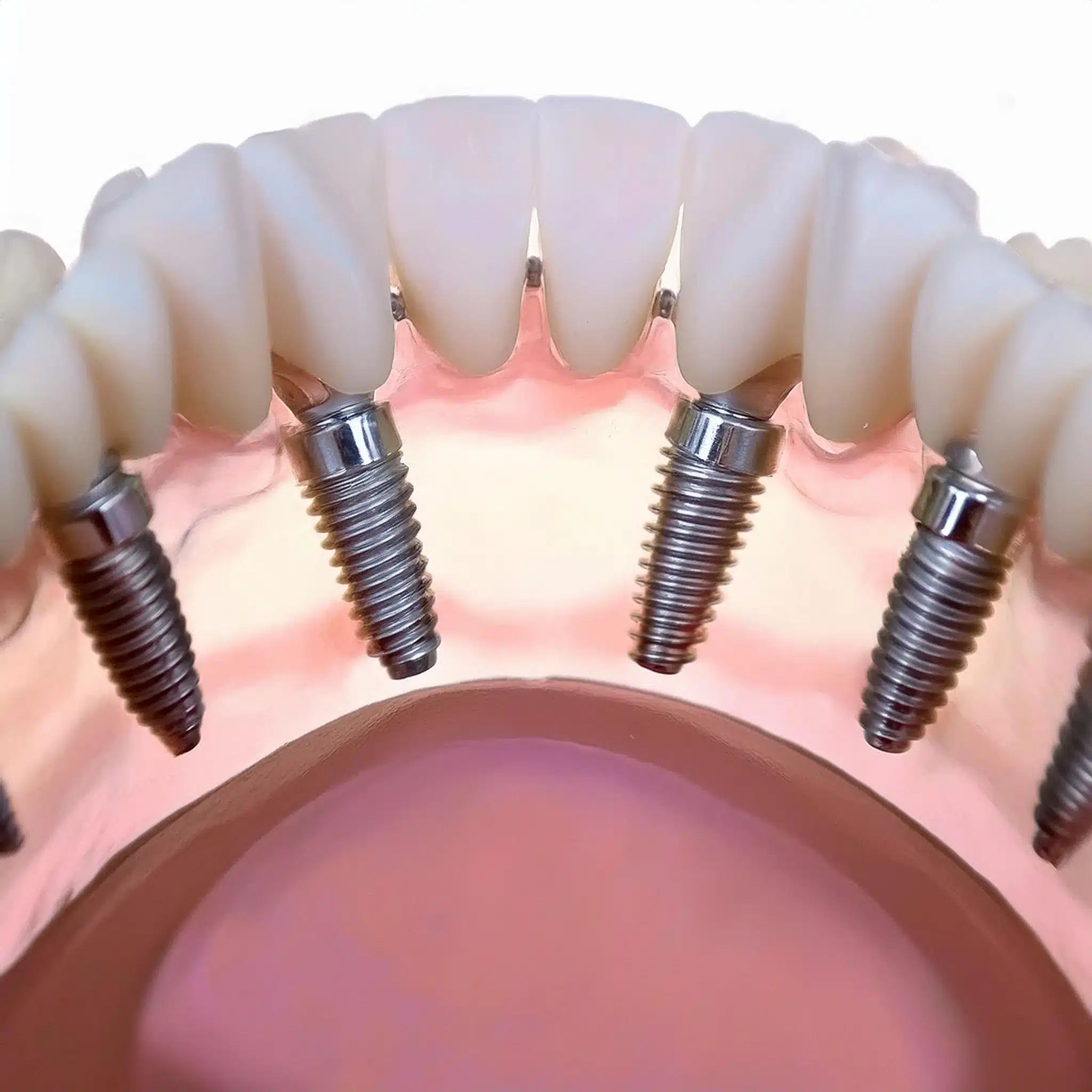
Conclusion & Key-Takeaways
Key-takeaways:
Dental implant alternatives are: dentures, bridges, All-on-4, mini dental implants, and crowns.
Each has its pros and cons: cost, durability, and suitability for different dental needs.
Choose the right alternative depends on individual circumstances: number of missing teeth, bone density, and personal preferences.
- Conclusion:
When it comes to replacing missing teeth, finding dental implant alternatives can help you find the best solution for your situation. By knowing the pros and cons of each option, you can make informed decisions that balance cost, effectiveness, and comfort. Whether it’s dentures, bridges, All-on-4, mini dental implants, or crowns, there’s an alternative for everyone.
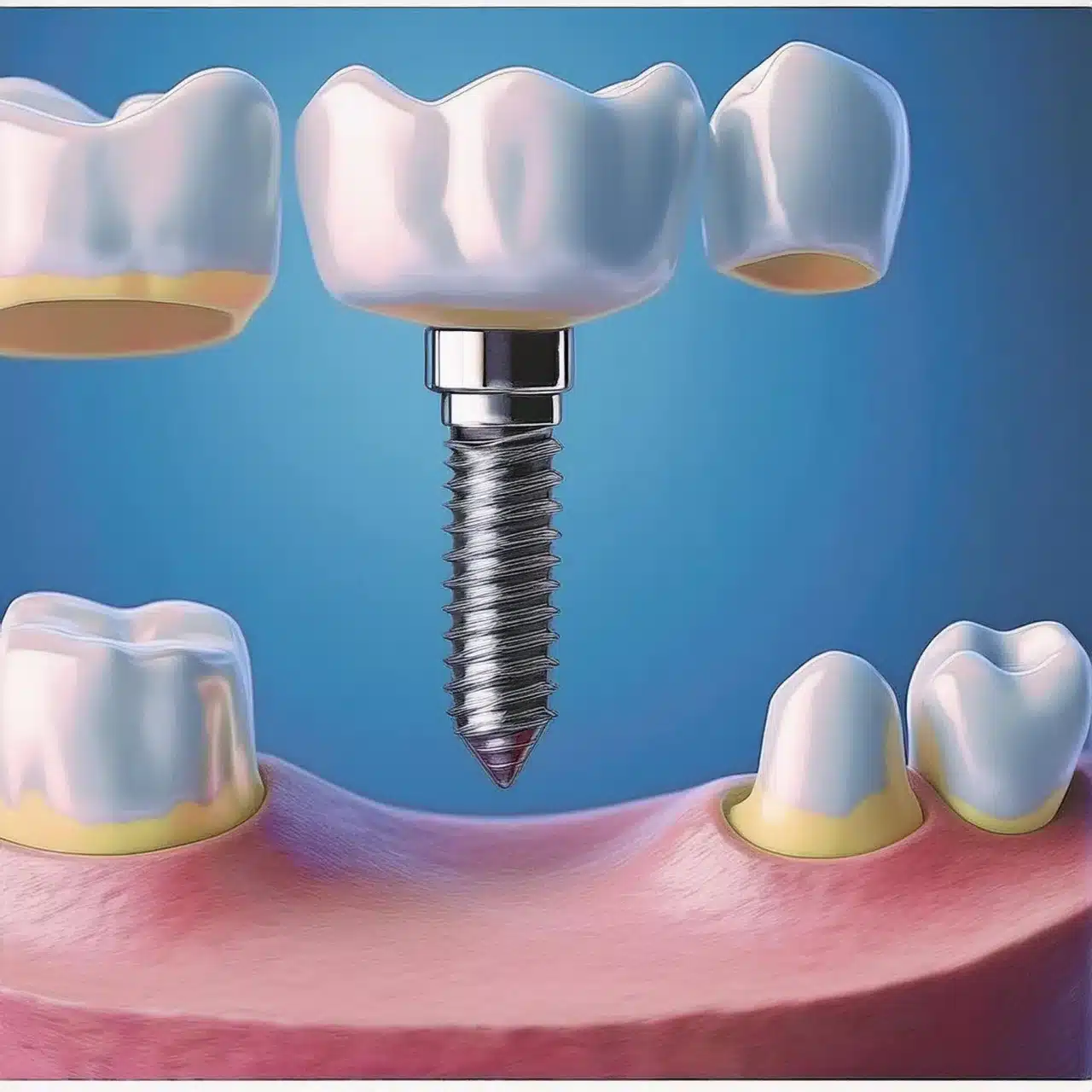
FAQs
References
Cho JM, Jo H, Jo HG, et al. Long-term steroid therapy and Denosumab treatment leading to peri-implant medication-related osteonecrosis of the jaw: a case report. J Dent Implant Res. 2024;43(3):27-32.
Lee HS, Kim TW, Moon IS, et al. A retrospective study on the factors associated with marginal bone loss of short implants placed in posterior regions. J Dent Implant Res. 2023;42(3):46-52.
Park IS, Kim YK, Jeong DG, et al. Minimally invasive immediate implantation in teeth with gingival recession: 3 case reports. J Dent Implant Res. 2024;43(2):9-18.
Article: Minimally invasive immediate implantation in teeth with gingival recession: 3 case reports
Amin OA, Shehata IM, Kamel HM, et al. Assessment of stability of early-loaded nano-coated hydroxyapatite implants in posterior maxilla. J Dent Implant Res. 2024;43(1):1-8.
Article: Assessment of stability of early-loaded nano-coated hydroxyapatite implants in posterior maxilla
Barber D, Beals D, Francis J, et al. Obliteration and grafting of the nasopalatine canal for implant placement. J Dent Implant Res. 2024;43(2):19-25.
Article: Obliteration and grafting of the nasopalatine canal for implant placement

